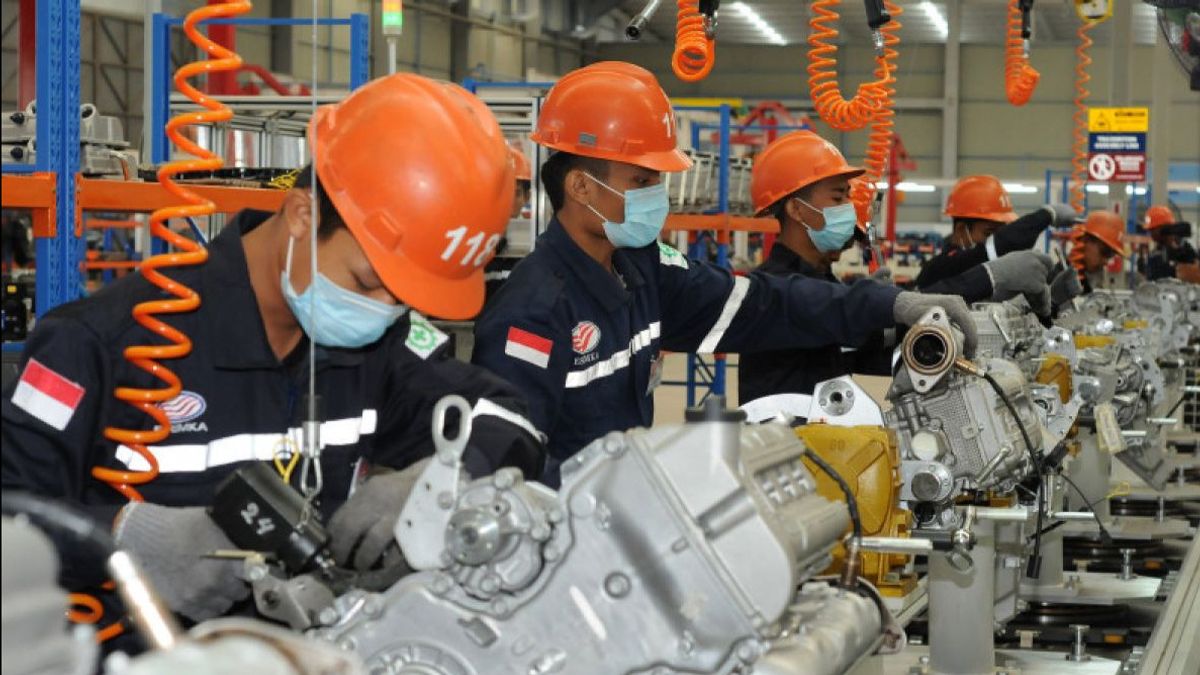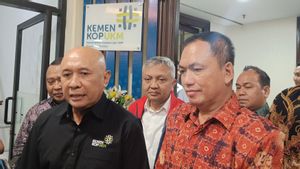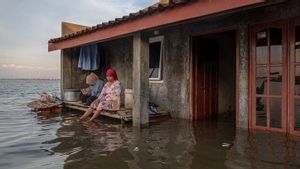JAKARTA - Indonesia has not experienced a phase of decreasing industrial contribution to the economy or deindustrialization. This is because the manufacturing sector continues to experience positive growth.
Economist of the Institute for Economic and Community Research, Faculty of Economics and Business (LPEM FEB) University of Indonesia, Kiki Verico, said that the deindustrialization was experienced by a country that had reached the advanced manufacturing stage or advanced manufacturing and then declined (sunset) and began to be replaced by other countries whose manufacturing had just taken-off (sunrise).
"The developed industrial country then shifted its economic backbone from the manufacturing industry to the service sector," Kiki said, quoting Antara.
He said the manufacturing industry in Indonesia continues to show beneficial performance towards the economy in the country. This contribution is expected to be the main capital to attract more foreign investment with the aim of increasing exports.
Therefore, he considered the need for support from other ministries and institutions (K/L) to support the policies implemented by the Ministry of Industry to strengthen the manufacturing sector.
According to him, in the future it can increase Indonesia's exports, as well as make greater donations to the national economy.
"Here, the role of the Ministry of Industry together with the Ministry of Trade, and the Ministry of Investment (BKPM) must be harmonious, including its policies. Do not let industrial policies support industry, while trade and investment are not, it's troublesome," he said.
He further said that the competitiveness of a country can be seen from the ability to compete in exports and imports, and this can be seen from the ability to attract foreign investment.
According to him, there are a number of efforts that the government can make so that the industrial sector in Indonesia continues to advance.
SEE ALSO:
These efforts include the quality of institutions and the environment, the environment and social, factors in the number of young people and productivity, as well as infrastructure capabilities in reducing logistics prices.
"If infrastructure is not good, logistics is expensive, investors also don't want manufacturing investment in Indonesia," he said.
Earlier on Tuesday (13/2) the Minister of Industry Agus Gumiwang Kartasasmita said Indonesia's manufacturing sector contribution was above the average value of world contribution.
According to him, based on UNStatus data, the value of Indonesia's Manufacturing Value Added (MVA) in 2021 is 228 billion US dollars. During that period, Indonesia's MVA ranking was above several countries, such as Canada, Turkey, Ireland, Brazil, Spain, Switzerland, Thailand and Poland.
"MVA Indonesia contributed 1.46 percent to the total world MVA in 2021, showing that Indonesia is one of the manufacturing powerhouses in the world," said the Minister of Industry.
The English, Chinese, Japanese, Arabic, and French versions are automatically generated by the AI. So there may still be inaccuracies in translating, please always see Indonesian as our main language. (system supported by DigitalSiber.id)











